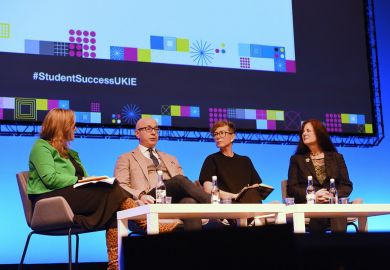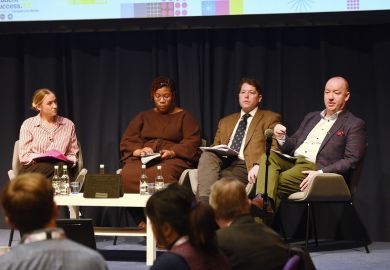Poor public health is a systemic issue that causes long-lasting damage and poor outcomes to communities and national economies. The massive inequalities among countries have been accentuated in the era of Covid-19, and the Times Higher Education University Impact Forum: Health and Well-being, co-hosted with the RCSI University of Medicine and Health Sciences, will review the intricacies of poor health and its ability to personally and financially cripple communities, particularly those vulnerable to poverty. The event, which will take place on 7-8 July, will bring together university leaders and health experts from around the world to assess different methods that can be employed to not only tackle global health problems, but in turn promote sustainability and development, and the overall optimisation of physical and mental well-being.
The first day of the forum will revolve around a series of masterclasses orientated on reaching SDG 3: good health and well-being, from improving access to water and sanitation to tackling the student mental health crisis. The next day’s proceedings will begin with an exclusive keynote delivered by Tedros Adhanom Ghebreyesus, director-general of the World Health Organization, on the role of SDG 3 in better equipping communities for the next pandemic.
Expanding on THE’s University Impact Rankings – the only global metrics that examine university performance against targets set by the United Nations’ Sustainable Development Goals (SDGs) – a masterclass led by Duncan Ross, THE’s chief data officer, will focus on those pertaining to health.
Mr Ross said: “Universities have a vital role to play in delivering the agenda of SDG3 – good health and well-being. They can provide access to deep research, but also act directly in their communities, acting as beacons of best practice. We hope that our Impact Rankings will continue to surface the brilliant work that higher education is doing, from across the sector and the world."
Fergal O’Brien, director of research and innovation at RCSI, will lead a session on the role of research innovation in achieving the SDGs by enabling the dissemination of vital information, transforming the sector to fight global health risks and reduce the risk of poverty. Discussing the positive impact of partnerships with NGOs, cooperation agencies, supranational organisations, foundations and trusts, Tom Arnold, chairman of the European Commission Task Force on Rural Africa, will demonstrate how such affiliations can accelerate progress in order to reach SDG3 by 2030.
Ciarán O’Boyle, director of the Centre for Positive Psychology and Health at RCSI, will address the need to explore beyond the realm of standard healthcare, emphasising that solely attending to physical symptoms does not equate to a cure-all, and that the biopsychosocial conceptualisation of health must be considered to build stronger, more enduring communities post-pandemic. In a subsequent keynote, Steve Leventhal, chief executive officer of CorStone, a US-based non-profit that offers resilience training to at-risk youth in economically disadvantaged areas, will speak to the challenge of building resilience at scale.
Cathal Kelly, chief executive officer of RCSI, will be joined by Adrian Hill, director of the Jenner Institute at the University of Oxford, for the forum’s final keynote, addressing how universities and civil society can work together to address global challenges in healthcare.
Professor Kelly said: “The UN SDG 3: good health and well-being, is aligned to RCSI’s core mission as one of the world’s leading health sciences universities. We take seriously our duty to use our expertise, knowledge and discoveries to inform and influence healthcare providers and policymakers, and to foster improvements in health across the world. We are proud to partner with Times Higher Education, facilitating conversations that address the social determinants of health and can lead to scalable impact and the next breakthroughs.”
Find out more information about the THE University Impact Forum: Health and Well-being
Register to continue
Why register?
- Registration is free and only takes a moment
- Once registered, you can read 3 articles a month
- Sign up for our newsletter
Subscribe
Or subscribe for unlimited access to:
- Unlimited access to news, views, insights & reviews
- Digital editions
- Digital access to THE’s university and college rankings analysis
Already registered or a current subscriber?




